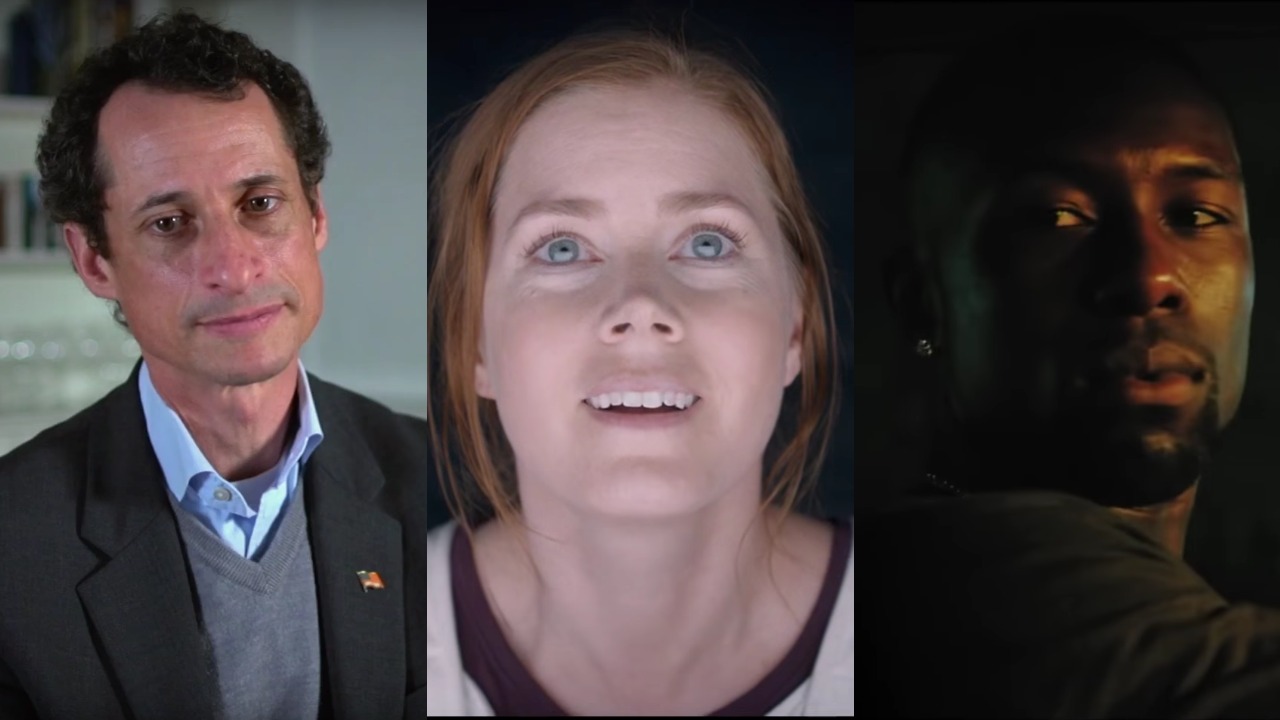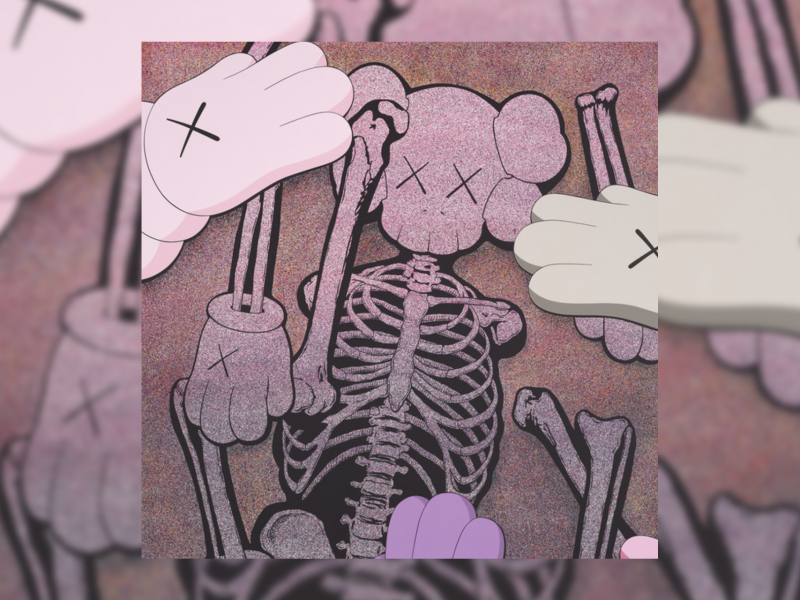It takes about 32 minutes to get from the AMC Georgetown movie theater to my apartment in College Park if I don’t run into much traffic. I’ve taken the route several times, often as a return trip from a press screening, and I usually play some music to celebrate the pleasure of seeing a film for free.
But a few weeks ago, I took that 32-minute ride in complete silence. I had just seen Moonlight and I had to spend that entire drive thinking about what exactly it was and why exactly I was feeling what I was feeling. Moonlight is that type of movie. It’s not just a film that has the potential to win awards, maybe even an Oscar come February; it’s a film that has the potential to stun you into silence.
Arriving at definitive statements about movies has always been hard for me. It took me days last year to land on one for these year-end lists and when people ask me for my all-time favorite I just shake my head. This year it was easy — looking back at 2016, Moonlight was the best movie I saw. I hope you’ll go to see it, too.
— Michael Errigo
10 Cloverfield Lane
If you want a cozy, predictable movie with a clear hero’s journey or pyramid-shaped plot, watch Finding Dory. But if you want to be dropped into a plot that’s so confusing it leaves you lost and a bit dazed, you’ll love the latest J.J. Abrams-produced thriller.
The story in 10 Cloverfield Lane — a quest for truth and freedom — subverts storytelling norms and plays with the audience’s understanding of truth. This unstable foundation on which the plot is built is enhanced by the wonderfully deranged behavior of John Goodman’s character.
The movie’s subtleties shock and creep out those who are attentive enough to notice them, and the three main characters fit together perfectly, balancing tension-breaking moments with high-stress scenarios.
When watching this movie, I found myself hoping that each scene was not the last. I could not get enough of this film.
Abrams puts together an all-you-can-eat buffet of suspense, barbarity and mystery that surpasses all of its 2016 competitors.
— John Powers
This year science fiction movies have been endlessly given mediocre titles such as the painfully predictable Independence Day: Resurgence and The 5th Wave. However, director Denis Villeneuve gave us a bold new look at the genre with Arrival.

Photo via YouTube
With a compelling lead performance from Amy Adams and an excellent supporting cast including Jeremy Renner and Forest Whitaker, the film offers relatable, three-dimensional characters. But what makes the film great lies in the extraterrestrial visitors’ purpose on Earth and how the most powerful countries around the globe handle their visit. The film encapsulates people’s difficulties working with one another, especially in scenes when the U.S. and China butt heads over what to do with their visitors. This source of conflict is resolved in one of the most powerful endings I have seen in a film for some time, one that boldly places all the stakes on the main character’s shoulders.
Villeneuve proves to the audience that emotions can pack more of a punch than Michael Bay-esque explosions, and this belief could lead to Oscar glory come February.
— Sam Antezana
This year, Deadpool was the superhero movie we deserved. It doesn’t just give us gratuitous violence, it also accentuates it with comedic self-awareness that keeps audiences laughing the entire time. Ryan Reynolds expertly captures the essence of the Merc with the Mouth character trope, going so far as to poke fun at his last superhero role, Green Lantern. Deadpool is the perfect combination of witty and gruesome, and at no point does it feel like it goes too far. Another aspect of the film that made it one of this year’s best was the marketing. The film, which premiered during Valentine’s Day weekend, was marketed with the slogan “True love never dies,” advertising it as a love story. Though the film does not fit the traditional mold of a love story, that is exactly what it is. Reynolds’ character Wade Wilson does everything he can for the girl he loves. These aspects come together to make Deadpool the best love story and the best movie of 2016.
— Jarod Golub
Hell or High Water
What stands out about Hell or High Water isn’t the intriguing, if somewhat formulaic, storyline: Two Texas brothers embark on a spree of bank heists to save their mother’s ranch, while a pair of Texas Rangers chases them down. It’s also not the acting, although each of the four leading men shines in their roles (Jeff Bridges’ gruff old-school lawman is particularly excellent). A fascinating plot and believable cast draws viewers in, and what makes High Water great is the grim picture it paints of the helplessness the characters face.
Director David Mackenzie knows how to use imagery to convey mood. In the burnt-out Texas towns the brothers pass through, derelict cars and buildings litter sandy roadways. Every driving scene — and this flick has a ton of them — features numerous washed-out billboards. The restaurants and businesses have drab decor and comatose customers, and the casino’s glitzy exterior belies the emptiness of its patrons’ faces.
Although High Water‘s many characters have different motivations and backstories, they all share a similar sense of powerlessness and despair. From the robbers, who constantly fear their scheme will fail and they’ll lose their family home, to the Rangers who will soon split up after Bridges’ character retires, to the waitress who struggles to feed her child and the cowboy whom the bank has plundered for decades — everyone feels that what they have could soon slip away.
In an increasingly hopeless country, this sentiment is common, yet it’s absent from most of the simplistic star vehicles that infest theaters. High Water may not tell the most original story, nor will its acting hit you hard. But the desperation it conveys from start to finish is unparalleled.
— Ryan Romano
13th
There is little I can say about Ava DuVernay’s documentary, 13th, to accurately describe how important a film it is. When writing a review I tried to capture a glimpse of its power, but as a white person born into a certain amount of privilege it is near impossible for me to do so. So instead of writing about how 13th is the best movie of the year, I’m going to convey why it may be the most important.

Photo via YouTube
To say that our country is in the midst of racial turmoil would be an understatement. But as much as we would like to think that racism has somehow diminished over the past couple of decades, there’s so much evidence out there to suggest otherwise. Mass incarceration is just the peak of the metaphorical iceberg when it comes to black suffering, something that is made abundantly clear in 13th. This is more than a documentary — it’s a step toward educating a public that is in dire need of an education. Is it uncomfortable at times? Yes. Is it necessary? Without a doubt.
— Taylor Stokes
Weiner
There are few things I love more than a really good documentary. Something that can capture the innate qualities of a human figure or issue — warts and all — and condense it into a thrilling story. And Weiner, which details Anthony Weiner’s campaign to become mayor of New York City two years after he stepped down from his position in Congress because of a sexting scandal, does that exceptionally well.
The documentary, with an inside look into his failed 2013 mayoral campaign, plunges deep into the psyche of Weiner, making him a figure that you almost feel bad for. He has moments when he is undeniably humorous, but also moments when he grows irritable and irate, portraying him as a confusing entity. And when another sexting scandal pops up in the middle of Weiner’s 2013 campaign, destroying any chance of his election, we see the damaging effect this has on his wife, Huma Abedin. It also further muddles our perception of Weiner, leaving viewers somewhere between empathetic and dismissive. Although the content is sometimes unsettling, Weiner is a must-see for its sheer quality and its ability to paint a beautiful portrait of an imperfect man.
— Josh Magness
Zootopia
An animated movie has never won Best Picture. Quite frankly, I gave up all hope when Space Jam failed to get any recognition whatsoever during the 1997 Oscars.
The fact that neither Michael Jordan nor Bugs Bunny received Best Actor noms still bothers me to this day. However, with Disney’s Zootopia, there’s a new bunny in town and she’s seeking some gold-plated hardware.
Judy (Ginnifer Goodwin), a rabbit from the pint-sized town of Bunnyburrow, overcomes all odds (she’s a very small rabbit) to become a police officer in the grand city of Zootopia. It’s supposed to be a heavenly destination, where animals of all sorts coexist peacefully in a modern society. Much like the United States in 2016, this theory is quickly debunked upon Judy’s arrival.
Zootopia has everything that a movie of the year should possess. The cast is littered with award-season heavyweights such as J.K. Simmons, Octavia Spencer and yes, Jason Bateman. You’ll laugh, you’ll cry and when the utterly adorable sloths make their appearances, you’ll probably do both.
— Cam Neimand



